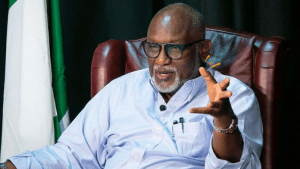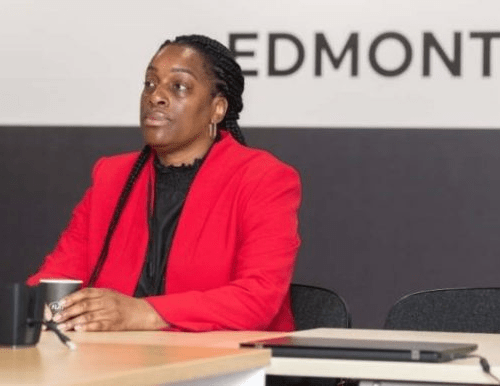Interview with Ebun Feludu
FOUNDER AND CEO, KOKARI COCONUTS & COMPANY
Ebun Feludu is the founder of Kokari Coconuts & Company, a Nigerian agro-processing company which turns coconuts into a variety of food and personal care products. In this interview with Jeanette Clark, Feludu discusses:
- How she started the business from her kitchen;
- Landing her first clients which included Lagos coffee chain Café Neo and pharmacy group Medplus;
- Facing the brink of bankruptcy due to non-payment by a major customer;
- The company’s strategy to take control of its own cash flow; and
- The importance of weathering the storms of entrepreneurship.
The coconut forms the basis of a multi-billion US dollar industry. The tropical fruit is valued for its nutritious flesh, water, oil, and various by-products from the shells and husks. The global market for coconut products is expected to reach $38.58 billion by 2030, at a compound annual growth rate of 8.4%. The increase in demand is fuelled by trends like plant-based diets, the cosmetic appeal of coconut oil, and the rising popularity of coconut as an ingredient in various food products.
Nigerian entrepreneur Ebun Feludu first got involved in the coconut industry because of personal health needs, as she sought alternatives for her lactose intolerance. Feludu had been lactose intolerant her whole life, but a year or so before she turned 40, she suddenly started experiencing really bad reactions to dairy milk. Struggling to find a plant-based alternative, she began producing coconut milk in her kitchen for personal use. Simultaneously, she sought to teach her young sons about entrepreneurship. They used leftover coconut to bake banana-coconut bread, which they sold at school fairs and pop-up shops. The loaves were a hit, and people wanted more.
At the time, Feludu was running her own media company, Plug Media. The challenge of not finding a suitable plant-based milk alternative, along with the success of her coconut loaf sales, convinced her to pursue a new business venture in coconut products.
She registered the business in 2016 as JAM The Coconut Food Company, now rebranded as Kokari Coconuts & Company. The next step was to secure clients for her coconut products. In instances where she couldn’t produce the products herself, her strategy was to source from cooperatives, with Kokari handling the bottling and sales.
Feludu approached Café Neo, a coffee chain in Lagos. “I basically … asked if they had people like me, who are lactose intolerant, who needed plant-based milk. And they said, ‘Yes … we need this urgently.’ And we started supplying them coconut milk for all their outlets, which was really big [for us], as they were a very established brand. We barely had a brand,” she remembers.
Not long after, Feludu accepted an invitation to attend a Women Economic Forum event in India. She utilised this opportunity to visit factories in Kerala, aiming to gain deeper insights into coconut processing.

From kitchen to factory
Back in Nigeria, the production of coconut milk from Feludu’s kitchen was increasing, thanks to the Café Neo contract. Feludu began the certification process with the National Agency for Food and Drug Administration and Control (NAFDAC), which offers cottage licences for small-scale production in homes. During a visit to her house, NAFDAC officials advised Feludu to consider a separate facility, given the growing scale of her production.
Shortly after Kokari received a large order for coconut oil from Medplus, a pharmacy chain it had been pitching to. The fact that Kokari was on the verge of getting its NAFDAC certification helped seal the deal. With this order, the company urgently needed to expand production. However, even with a small investment from Igrow Agri Invest, an investment club Feludu had started years earlier, it still lacked sufficient funds.
Feludu required a strategy, as obtaining a loan from a traditional bank was financially impractical, given the double-digit interest rates. Therefore, with the assistance of her entire family, she initiated a crowdfunding campaign to pay for the factory space. Supporters of the campaign were rewarded with a five-litre container of coconut oil for their contribution.
Currently, Kokari operates two factories in Lagos State – one in Badagry with a production capacity of 100 tonnes per month, and another in Okun Ajah, capable of producing 35 to 40 tonnes monthly.
Serving industries and individuals
Kokari caters to a diverse clientele, serving both corporate clients (business-to-business, or B2B) and individual consumers (business-to-consumer, or B2C).
On the B2B front, the company supplies coconuts and its by-products to manufacturing firms – such as cosmetics companies – that use them in their production processes. According to Feludu, B2B sales are growing significantly, making the current split between B2B and B2C sales approximately 50:50.
“The trend, [is] that many FMCG manufacturers … even if they are not mainstream coconut manufacturers … want to add an element of coconut in whatever they are doing. It could be their toothpaste, it could be their shampoo, it could be their skincare products,” says Feludu. “This is because market insights show that people associate anything made from coconut with wholesome and healthy and the consumers gravitate towards that.”

A selection of Kokari’s products.
On the B2C side, Kokari supplies retailers such as Shoprite, Hartleys, Grandex, Foodco, Medplus, and HealthPlus. The company has also catered to hospitality clients like the Legend Hotel Lagos Airport, Jara Beach Resort, and the Transcorp Hilton in Abuja.
Kokari’s product line-up, all manufactured in-house, includes food items such as coconut cinnamon balls and coconut flakes; personal care products like activated coconut charcoal powder for oral care; and other offerings like a fertiliser substrate and lacquered bowls made from coconut shells.
Aiming abroad
Feludu emphasises her deliberate focus on expanding into international markets, despite the high local demand for coconut products that already exceeds Kokari’s supply capacity. The company benefitted from a grant from the Nigerian Export Expansion Facility Programme, which enabled it to purchase packaging for an order that was subsequently shipped to the UK.
Kokari also made strides in the US market following a recent trade show, with some stores onboarding its products. For effective growth in the US, Feludu believes that a local presence is crucial. To this end, Kokari has registered a company in the US and is talking to potential partners with warehouses to handle local distribution. She points out that American buyers prefer not to deal with the delays associated with shipping from Africa, favouring local availability and swift access to products.
The company’s other export markets include France, Dubai and South Africa.
Bridging the coconut gap in Nigeria
Most of Nigeria’s coconut production is concentrated in Lagos State, yet it falls short of meeting the country’s demand. As a result, a significant quantity of coconuts is imported from neighbouring West African countries, a trend Feludu aims to change. She says that Nigeria has 24 states with suitable climates for coconut cultivation.
Kokari has started coconut production on its own land. It also sells coconut seedlings through its e-commerce platform and is involved in training other farmers in coconut cultivation.
Human resource challenges
According to Feludu, one of the biggest challenges she has faced is finding the right talent to grow the business and then being able to afford these employees.
Over time, Kokari Company developed an HR division, which now plays a key role in ongoing employee training. This approach has successfully reduced staff turnover. The company currently has 48 employees.
Feludu also shares a critical HR insight: the importance of ‘firing quickly’ when an employee doesn’t align with the company’s culture. “When you know is not happening, fire quickly and move on. It sounds harsh, but it’s necessary … Otherwise, [that person] will become a virus to the entire culture that you’ve spent years building,” she says.
Building resilience in storms
The last seven years have had their tough moments, but Feludu particularly highlights the cash flow problems arising from non-payment by a significant customer as the most challenging.
“Basically, we were almost going bankrupt. I remember I was sitting depressed in the dark for two days, and when I bounced up, it was to say [to myself]: ‘Listen, I have to have control over cash flow’.
To gain control of its cash flow, the company introduced Kokari Cafe. The first of these cafés opened in September 2023 in Ibadan, offering coconut-based smoothies and parfaits, as well as a range of Kokari products, directly to consumers.
Feludu has set her sights high, aspiring to establish numerous Kokari Cafes in the future, expanding both within the local market and internationally. Additionally, the company is fostering a unique approach to growth by allowing its employees to co-own a Kokari Cafe it is establishing, giving them a profit-sharing opportunity. “This is something that the staff are really excited about. Because basically, there’s really no limit to how much they can they can earn as long as they’re able to focus on making sure that that outlet is successful,” the CEO explains.
Like all Nigerian manufacturers, Kokari also has to grapple with irregular power supply. The company incurs significant expenses running generators to stay operational when the national grid falls short. “The amount of money we have to pay to generate our own power is really crippling to a business,” notes Feludu.
In the past year, the Nigerian naira has significantly weakened against the US dollar, influenced by factors including relaxed foreign currency controls, declining investment, and reduced crude oil exports. This worsening exchange rate has driven up the cost of manufacturing inputs and materials, as many of these are imported. However, Feludu notes that this situation presents an opportunity for manufacturers that export, as it could boost their foreign revenue streams.
She believes that trying times build resilience. “It really is tough running a business, but what happens is – when you decide you’re never going to give up, when you decide that whatever comes, I will handle it, I have what it takes to handle it – [then] you build the muscle of ‘handling’,” she says. “So that … you’ll be sitting in the middle of a storm … and you will be able to get through that storm. But you only build that muscle when you go through the storm … What happens is many people go through the storm the first time, and they run. So they never get a chance to exercise the muscle that we all have to get stronger.”
Courtesy: www.howwemadeitinafrica.com
























This is so inspiring…Big ups for kokari
cialis .uk